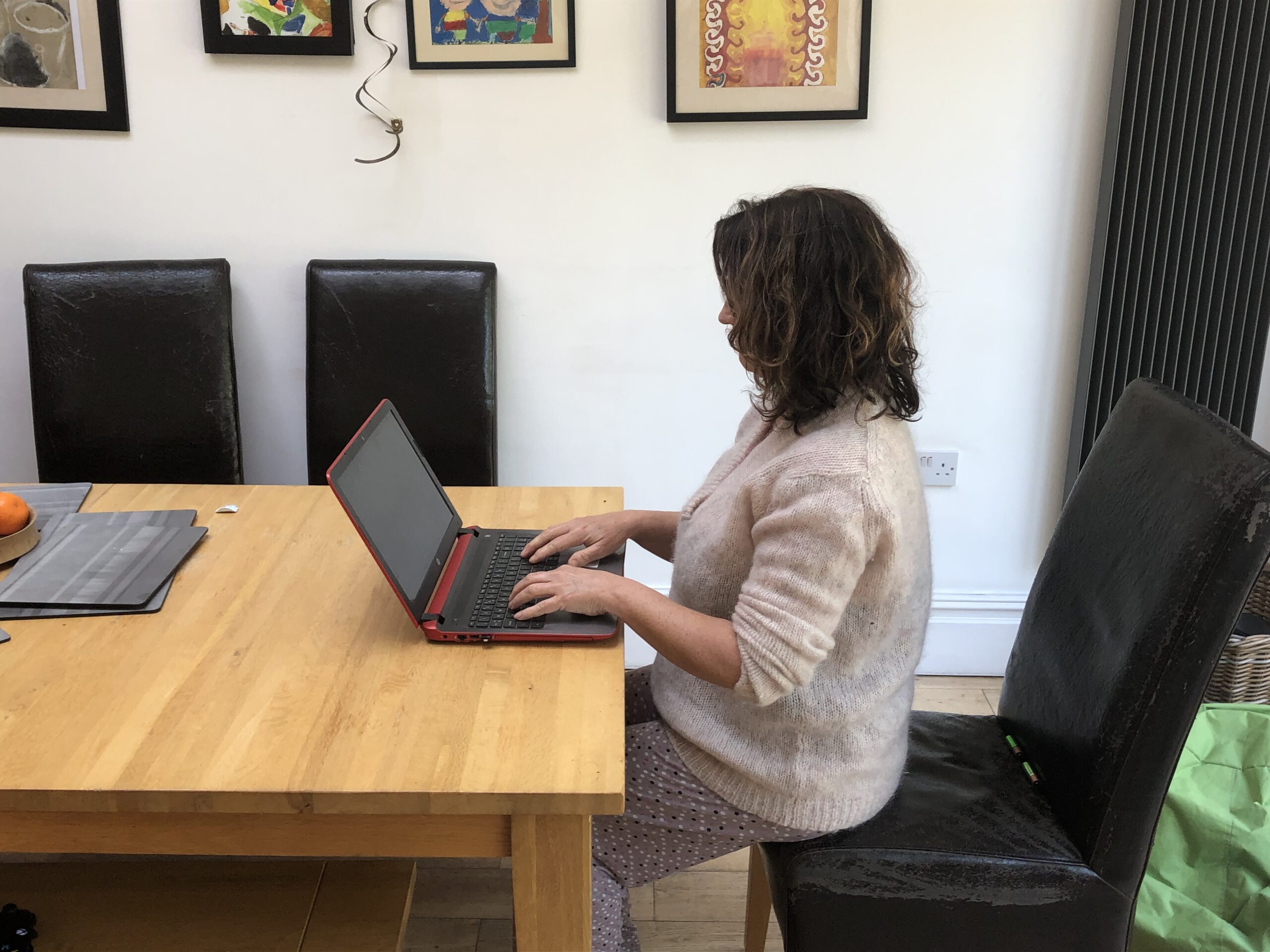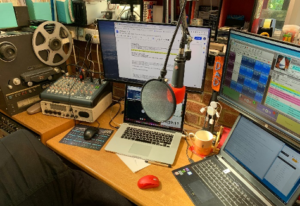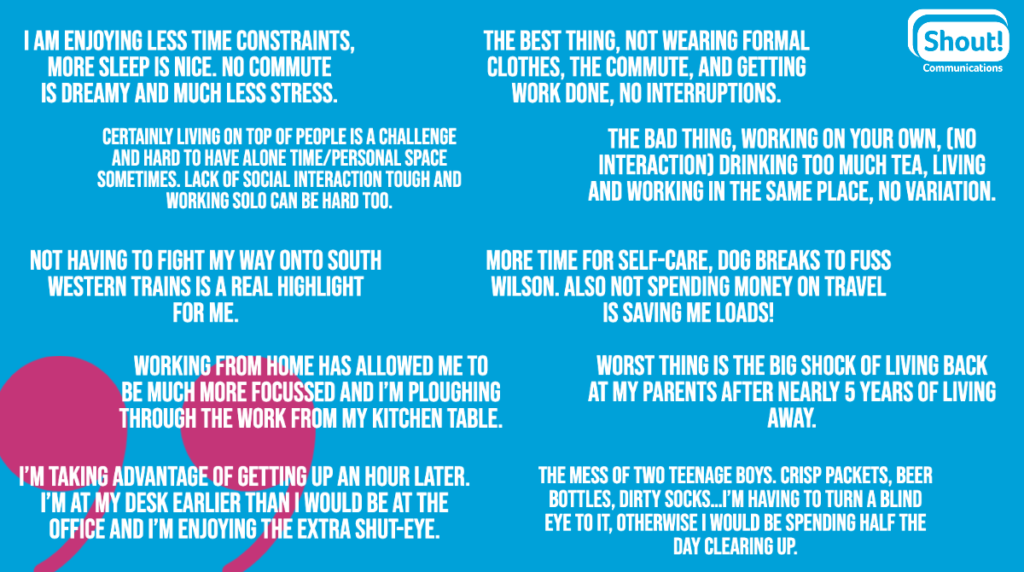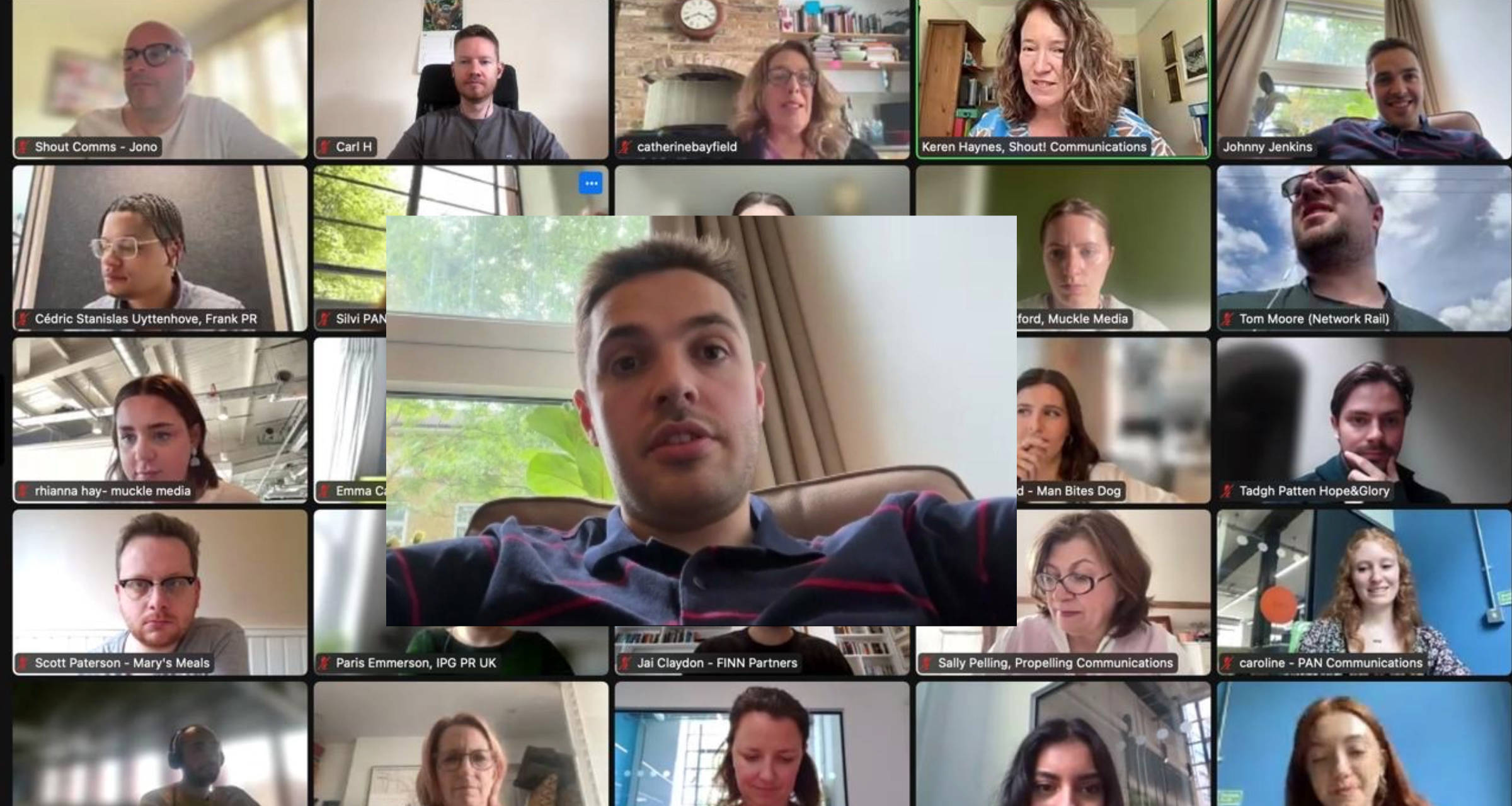If you grew up in the 1980s you might remember a BBC 1 show called called “Tomorrow’s World”, a programme which showcased what a future with technology would be like in years to come. I remember an episode in the mid 1980s where the whole show was devoted to what a British house could be like in 2020.
The main thrust was we would be working from home, using computers to talk to each other around the world and a “Smart Speaker” which would turn the lights on and make the coffee. Well the later isn’t there but two and a half decades later the predictions are not far from the truth.
“No one ever uses the table to eat food”
British Telecom TV ad from the 1980s
Most of us have decent speed broadband. Over the years you might have thought it good enough to send a few emails and check out the BBC website sports pages, but you caved into kids who moaned “it wasn’t fast enough”. Well now, aren’t you glad you took up the offer and upgraded to 50 mbps, even if it does mean you have more TV channels then you can watch?
It’s come into it’s own these last few weeks as we’ve adapted to having group meetings via platforms like Zoom and Team.
“Nothing changes apart from eating and drinking more coffee”
For me it’s been very easy to fall into the new routine. Alarm goes off, I have breakfast and log on for the planning meeting at 0900. What is different, and many can relate to, is getting on a train, then trying to get on to a tube and for most days, “hugging a stranger”, just to do it all over again in the evening. Two weeks in and we ask the question: why didn’t we work from home a lot more? I think the answer is companies questioning trust and whether the business would continue. Given no choice businesses have had to adapt and this could change the way companies run in the future.
How is working from home different?
Overall nothing. Most of us will use email/phones and internet in the office and, bingo, we have them at home too. With file-sharing software like OneDrive we can still access files and documents, we can still interact via video and text.
Since working from home, I’ve arranged three radio days and the speaker was at home and interacted with the broadcasters via Skype/Facetime or the phone. It’s nice to have all parties in one room but with constant communication on text, everyone knows what is happen and when.
So just because we’re not in the office doesn’t mean we’re not here.
My social media feeds over the last week have shown pictures of people’s home offices and radio studios. Right now most of the country’s radio stations are coming from presenters/producers’ homesConnectivity means you can even broadcast from your phone via an IP app.
The change for working practices
The number of people working from home on a permanent basis has only slowly increased over the years. There were just 3.3% in 2000, compared to 5.3 in 2018. Can’t wait to see what those figures are once the pandemic is over!
In the meantime, flexi working doesn’t mean working less. All our services, from radio days and TV sell-ins, to podcast production and media training conducted over Skype, are on offer.
If you’d like to discuss an upcoming broadacast PR campaign please get in touch. Emil hello@shoutcommunications.co.uk or call 020 7240 7373 (it will be diverted to one of the team’s mobile numbers) to discuss.






